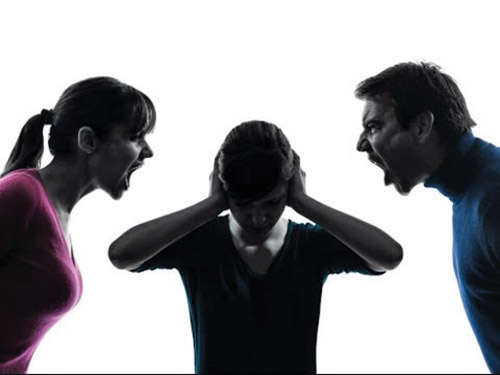
There are lots of reasons parents yell: They may be stressed, overwhelmed, scared or overtired. Their children may be misbehaving, disrespectful, mistreating others, engaging in truant or illegal behavior, failing school or not doing their chores. Parents may yell because that is how they were disciplined when they were young. Maybe they yell because they feel it’s effective or maybe they yell because they simply don’t know what else to do.
Let’s consider a typical example. Lauren, a loving mother of 16-year-old Madison and 4-year-old Tyler, would never intentionally hurt her children. Each day Lauren wakes up promising herself that today will be the day that she won’t lose her cool with her kids. Today, she makes it all the way to bedtime. Exhausted from the day’s activities, Lauren has to get her kids in bed and then continue working on a project she wasn’t able to complete at work that day. The following conversation ensues:
Lauren: “Tyler, you need to go back to bed and stay there.”
Tyler: “But I need my special zebra.”
Lauren: “We’ll have to look for it tomorrow. It’s late now. Please go back to bed.”
Tyler: “No! Find my zebra. Where is it? I can’t go to bed without it.”
Lauren (now angry): “Why do always need to do this Tyler? Get back in bed! Now!”
Tyler (crying): “I just want my zebra!”
Lauren: “What’s wrong with you?!”
Madison: “Mom, where’s my phone?”
Lauren: “Leave me alone! I’m busy and you never give me my space!”
After another 10-minute struggle, Tyler finally gets back in bed crying and Lauren returns to her work feeling guilty, having no further contact with her daughter for the night.
How could Lauren have ended this day on a calmer note? Before we talk about how to stop yelling, we must first clarify why yelling is a bad idea.
Why stop yelling at your kids?
1. Children are typically black-and-white thinkers. They don’t yet have the cognitive abilities to distinguish between “I’ve done a bad thing” and “I’m a bad person.” So a child who is the recipient of constant yelling eventually internalizes the message that he is a bad person, deserving of being ridiculed often. This, in turn, negatively affects a child’s self-esteem, which may eventually cause him to sabotage his successes and/or surround himself with friends and partners who yell at or berate him in other ways.
2. Yelling at your children teaches them that yelling is an acceptable form of communication. Your child thinks, “If mom and dad are doing it, that must be the way to do it.” It won’t take very long before they begin yelling right back at you or others. Each time you yell is a missed opportunity to model other ways of communicating more positively and effectively.
3. Yelling conditions your children to misbehave again. Your child may listen to you in the moment they are being yelled at, but in the long run they are being taught that misbehaving is a great way to get an immediate and intense reaction out of you. True, it may be negative attention, but it’s still attention, something all children crave. The more reactive you are when your child misbehaves, the more likely they are to repeat the bad behavior. Think about it: What’s more likely to elicit an enthusiastic reaction from you? When your child brings home a good test grade, or when he teases his sister—again?
Look for part two of this article next week: How to Stop Yelling at Your Kids.
Heather Feigin, LCSW, is a psychotherapist with a private practice in Passaic, New Jersey. For appointments, call 973-348-5279. Got a question for Heather? E-mail heather.feigin@gmail.com.











